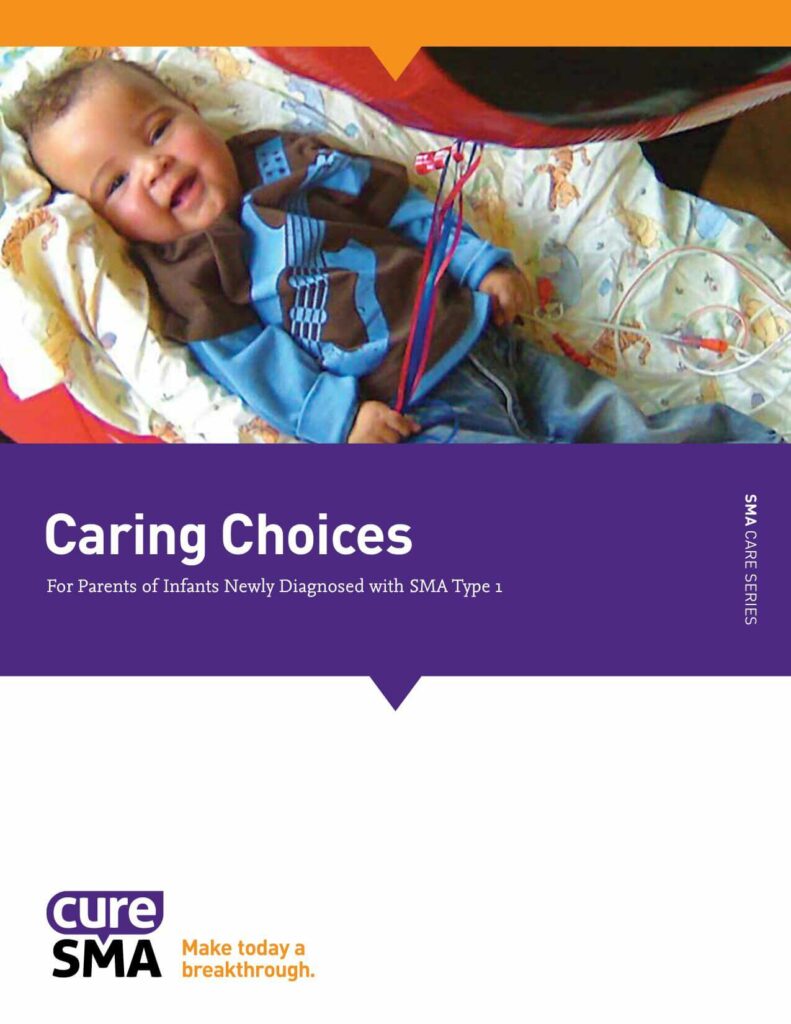Quality of Life
There are options to consider after receiving a spinal muscular atrophy (SMA) diagnosis. Please know that the decisions to be made are yours to make.
Quick Links
Quality of Life Basics
We support individuals with SMA and their caregivers in deciding what care options are best for your individual situation. For newly diagnosed infants and children, these decisions are especially urgent because delayed treatment may result in greater physical challenges, including muscle weakness and trouble breathing, coughing, and swallowing if not treated early with targeted therapies.
For adults living with SMA and who receive the diagnosis of SMA, determining your quality of life priorities and collaborating with your healthcare provider about options to treat or not is essential.
No matter what options you choose, a focus on quality of life should be part of your care plan. This will assist you in making decisions that are best and are consistent with your personal values and beliefs.
Explore more on this topic in Cure SMA’s Care Series Booklet, Caring Choices.
Quality of Life Considerations
As you consider your care plan and care and treatment options, we suggest considering some of the following issues. This is not so much a checklist, as much as it is a guide to help you arrive at the best decision for your child and your family.
- Are you comfortable with your doctor and the options they have provided? If needed, find a clinician who has experience with SMA and who you are comfortable with
- Have you investigated all your options? Talk to other individuals with SMA, caregivers, doctors, or clinicians. They can share their experiences or point you to resources they have found helpful
- Have you gathered all the information you need? Browse this website, contact a member of our Support Team, or reach out to a leader of your local Cure SMA chapter. All Cure SMA representatives pledge to offer non-judgmental support, without pressuring you to choose one care plan or another
- Do you have a friend or family member who can help you think through your decisions? In addition, often, an interdisciplinary care team will include a counselor, social worker, or a spiritual advisor/chaplain. Support is available to help you make the decision that is best for you

Palliative Care
Palliative means relieving or soothing symptoms without curing the underlying disease. Palliative care is an interdisciplinary approach, involving clinicians from different areas, such as medicine, nursing, social work, spiritual care, and various types of therapies. Palliative care strives to provide comfort, and to uphold quality of life: physically, psychologically, socially, emotionally, and spiritually.

Palliative care is NOT “doing nothing.” Palliative care is:
- Making choices consistent with your beliefs and values, using your head and your heart, and sometimes changing your mind
- Using an interdisciplinary approach to provide the best possible care that meets your goals
- Experiencing the best quality of life, however you define it, from a physical, psychological, social, emotional, and spiritual perspective
- Receiving the support, information, and guidance you need to make the best decisions
- Adopting a care strategy that you can use in addition to treatment, not instead of it



